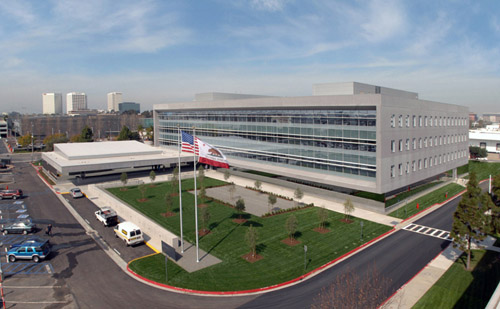Make Sure It Goes

How do they do it? How does the Pentagon make absolutely sure their space missions go as planned?
Well, they pay for it. Take, for example, the good people at Aerospace Corp. in El Segundo, CA. They’re part of every major mission and they make sure it goes.
Nice piece by W.J. Hennigan of the LA Times on the company…
Aerospace also helps the Air Force monitor rocket launches. Engineers pore over data and the fine print to make sure everything is in its right place. A misplaced decimal point can turn billions of dollars’ worth of intricate hardware into blazing debris in just a fraction of a second.
The company’s 41-acre campus sits across the street from Los Angeles Air Force Base, which oversees military rocket development. The two complexes are linked by a 135-foot bridge over El Segundo Boulevard.
Aerospace recently built a $66 million building with a space launch center in the basement. Resembling NASA’s mission control center in Houston, the facility allows Aerospace engineers to keep real-time tabs on rocket launches at Cape Canaveral, Fla., or California’s Vandenberg Air Force Base. They monitor incoming data looking for anomalies and can order the launch to be scrubbed if there are any.
Since Aerospace has kept a close watch, the Pentagon has had a string of 65 consecutive successful launches stretching back to 1999.
"That kind of reliability is unprecedented," said Gary Payton, who retired in July as deputy undersecretary of the Air Force for space programs.
It may cost $20 million to $30 million more in launch costs for the type of "mission assurance" that Aerospace provides, but it’s well worth it, he said. "I would like to save money on a launch. But if the launch vehicle fails, I splash a $2 billion satellite."
On the commercial side, where customers may not be ready to pay for this kind of help, you may not see such a high mission success rate.